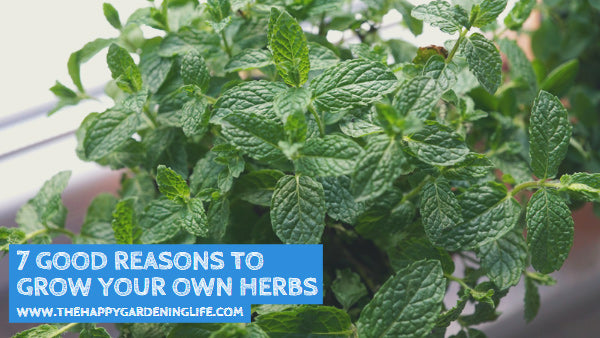
7 Good Reasons to Grow Your Own Herbs
Share
Growing herbs has indeed become extremely popular this year. Herbs are now a staple in many home gardens for their low maintenance and usefulness in the kitchen.
Even first-time gardeners see herbs as a good way to begin a garden. This is because most herbs are super easy to grow: they can generally thrive anywhere as long as they’re provided with right amount of water, sunlight, and good-quality organic soil.
Another reason to grow herbs is because you never have to worry about destructive insects. Herbs can easily repel unwanted bugs, therefore insect damage is almost never an issue.
Herbs are also quite good at attractive beneficial bugs, which is important for pollination. Grow beneficial herbs like anise, borage, dill, fennel and yarrow to naturally pollinate your garden and produce much healthier plants.
Still not convinced about herb gardening? Here are other good reasons why you should start planting herbs this year!
To share this blog post online, please click on the social buttons below.
Reasons Why You Should Grow Herbs This Year
1. Herbs as a whole are one of the easiest group of edibles to grow — hands down. They seem to be determined to grow and most of them aren’t picky about where. If you’ve never gown a thing in your life, start with herbs.
2. The can help combat erosion. Do you have a slope-y hillside in your yard? Herbs such as thyme varieties, sage, and winter savory will beautify the hill and help keep it in place at the same time.
3. Herbs such as lemon thyme, silver thyme, lemon, thyme, purple basil, tri-colred sage, and golden sage offer great color in the garden and landscape.
4. They thrive in containers. Therefore, herbs can be grown by anyone, anywhere.
5. Most herbs are irresistible (and important) for pollinating and beneficial insects. Call more of the good guys to your garden with herbs.
6. Most herbs have little to no problems with insect damage.
7. Free herbs! Many of them are easily propagated through cuttings and/or root division.
Article Source: vegetablegardener.com
